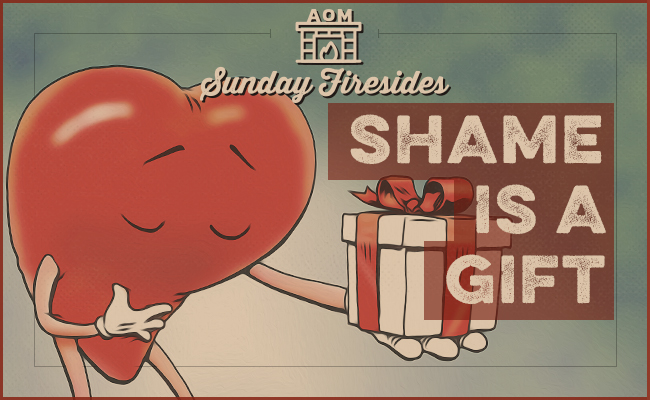Shame has gotten a bad rap these days.
It’s popular to think of all shame as “toxic,†and that nobody ought to make you feel ashamed of yourself.
Certainly, experiencing shame over circumstances outside your control is unnecessary and destructive. And in our heterogeneous, atomistic society, you can’t waste time feeling shamed by the opinions of strangers whom you do not know nor respect.
But much of shame is in fact quite healthy — is, in fact, a gift.
As Carlin Barton observes in Roman Honor, shame can not only be a gift to yourself, helping you see where you’ve fallen short, it can also be a gift that you give to others.
To stand ashamed before someone whose trust you’ve broken, whose expectations you’ve failed, whose spirit – which they gave you on loan – you’ve carelessly scorched, is to acknowledge their humanity. As the philosopher Max Scheler puts it, to show your shame ensouls another; to demonstrate its lack, desouls him.
Shame is not only an appropriate offering to present someone you’ve wronged, but an appropriate tribute to pay someone who surpasses you in skill, in intellect, in virtue. It is a sign of a humble, healthy spirit to feel a visceral sting of awe and intimidation in the face of one who embodies a superior morality, who does life better, who lives and comports himself in a way you wish you did. To be ashamed when one encounters such an admirable individual, honors him (and hopefully prompts you to be better yourself).
It’s easy to want to rid your own life of shame. But shame isn’t just about you. It’s something with which you endow other people. Indeed, what a vulgar world it would be if we all truly became . . . shameless.



